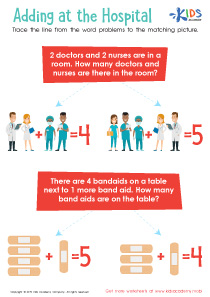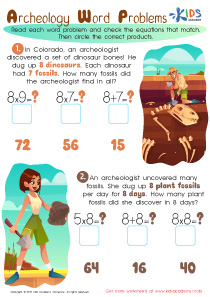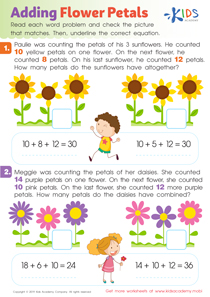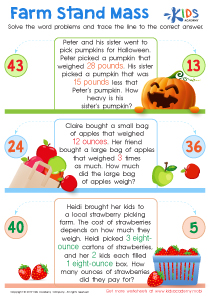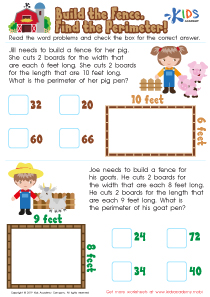Normal Money Word Problems Worksheets for Ages 3-4
1 filtered results
-
From - To
Introduce your little ones to the basics of financial literacy with our "Normal Money Word Problems" worksheets, perfectly tailored for children aged 3-4 years. These engaging school homework sheets are designed to make learning about money fun and accessible. Through simple, age-appropriate problems, children will explore counting, identifying, and understanding the value of different coins and notes, setting a strong foundation for future math skills. The colorful and interactive format ensures a captivating learning experience, making it a delightful addition to any preschool curriculum. Equip your child with the essential skills for managing money from an early age!
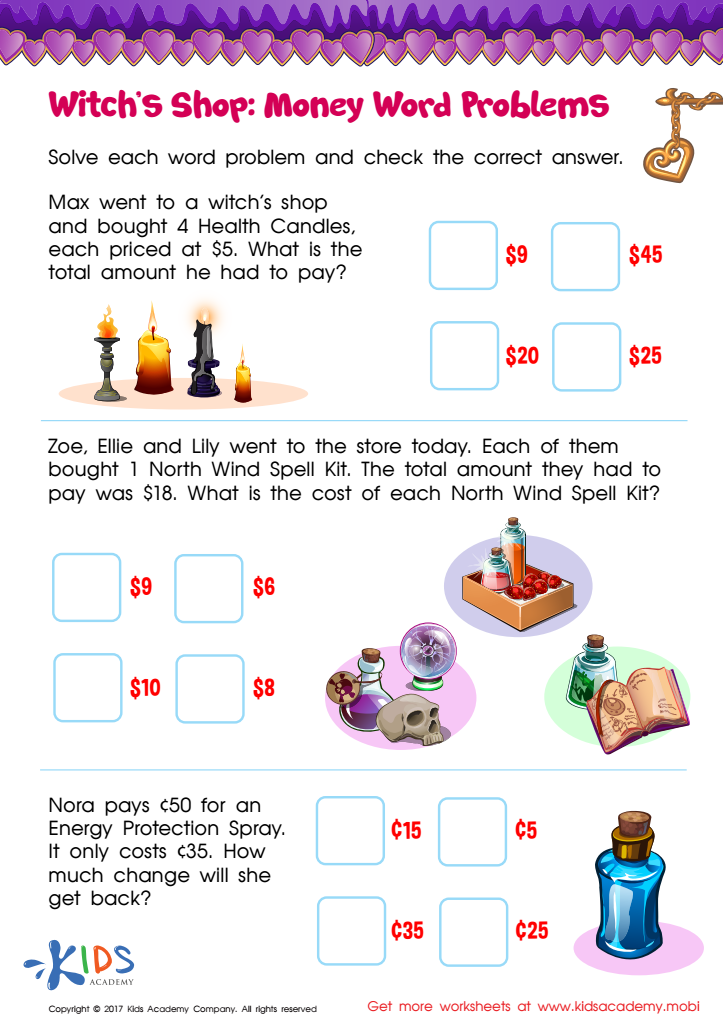

Money Word Problems Printable
In the early years of education, developing a strong foundation in basic concepts is crucial for young learners. For children aged 3-4 years, understanding the concept of money can be both exciting and educational. "Homeschool worksheets" focused on Money Word Problems are an excellent resource for parents and educators aiming to introduce the fundamentals of financial literacy in a fun and engaging way. These worksheets are not just about counting coins and bills; they are about setting the stage for critical thinking and practical life skills.
Why are Normal Worksheets on Money Word Problems Useful for Ages 3-4?
1. Introduction to Basic Math Skills: Homeschool worksheets designed for Money Word Problems help children grasp basic math concepts like counting, addition, and subtraction. These are the building blocks of math literacy. By using money as a tool for these early math lessons, children can see practical applications of numbers, making the abstract concepts more concrete and understandable.
2. Development of Cognitive Skills: Money word problems require thinking, reasoning, and problem-solving. Even in simple forms, these problems encourage young children to listen or read a scenario involving money and derive a solution. This stimulates cognitive development and enhances their ability to process information and solve problems creatively.
3. Real-life Applications: Money is a fundamental element in everyday life. Introducing young children to money through these worksheets teaches them about its value and uses. They learn that money is not just for buying toys or candy, but it plays various roles in different contexts. This early education can lay the groundwork for responsible money management skills later in life.
4. Enhancing Communication Skills: Discussing money word problems provides a platform for children to express their thoughts and reasoning. As they explain how they solved a problem or discuss what they think about money, they develop essential communication skills. Engaging with parents or peers over homeschool worksheets also fosters social interaction, which is vital for early childhood development.
5. Building Confidence and Independence: Completing worksheets gives children a sense of accomplishment. As they successfully navigate through the challenges posed by money word problems, they build confidence in their abilities. This confidence can translate to other areas of their learning and daily activities, promoting a healthy sense of independence.
6. Customizable Learning: Homeschool worksheets on Money Word Problems can be easily tailored to fit the learning pace and interests of individual children. Parents and educators can choose problems that align with the child’s current understanding and gradually introduce more complex concepts as their skills develop. This personalized approach ensures that learning remains engaging and not overwhelming, catering specifically to the developmental stage of each child.
7. Preparation for Future Academic Success: Early exposure to structured learning tools like worksheets can prepare children for the more formal settings of school. Working through homeschool worksheets helps them understand how to follow instructions, focus on tasks, and complete assignments. These are crucial skills for academic success in kindergarten and beyond.
8. Encouraging Curiosity and Exploration: Money word problems can spark curiosity about numbers and economics. Children may start asking questions about where money comes from, why different items cost different amounts, and how money is used by families. This curiosity can be a powerful driver of learning, leading them to explore more about the world around them.
9. Flexibility in Learning Environments: Homeschool worksheets are particularly valuable because they can be used in various settings – at home, during travel, or even in small group settings with other homeschoolers. This flexibility allows children to learn in environments where they feel most comfortable, further enhancing their learning experience.
10. Inclusion of Fun and Creativity: Many homeschool worksheets on Money Word Problems incorporate colorful images, fun themes, and creative stories that relate to the problems presented. This makes learning about money enjoyable rather than a chore. Children are likely to engage more with the material and retain the information better when it's presented in an enjoyable format.
In conclusion, homeschool worksheets on Money Word Problems are an excellent tool for introducing young children to basic financial concepts and math skills. They offer a blend of cognitive challenges, practical applications, and engaging content tailored to the developmental needs of 3-4-year-olds. By integrating these worksheets into early education, parents can provide a strong foundation for their children’s academic and personal growth, setting them on a path to becoming confident, curious, and capable learners.
 Assign to the classroom
Assign to the classroom




